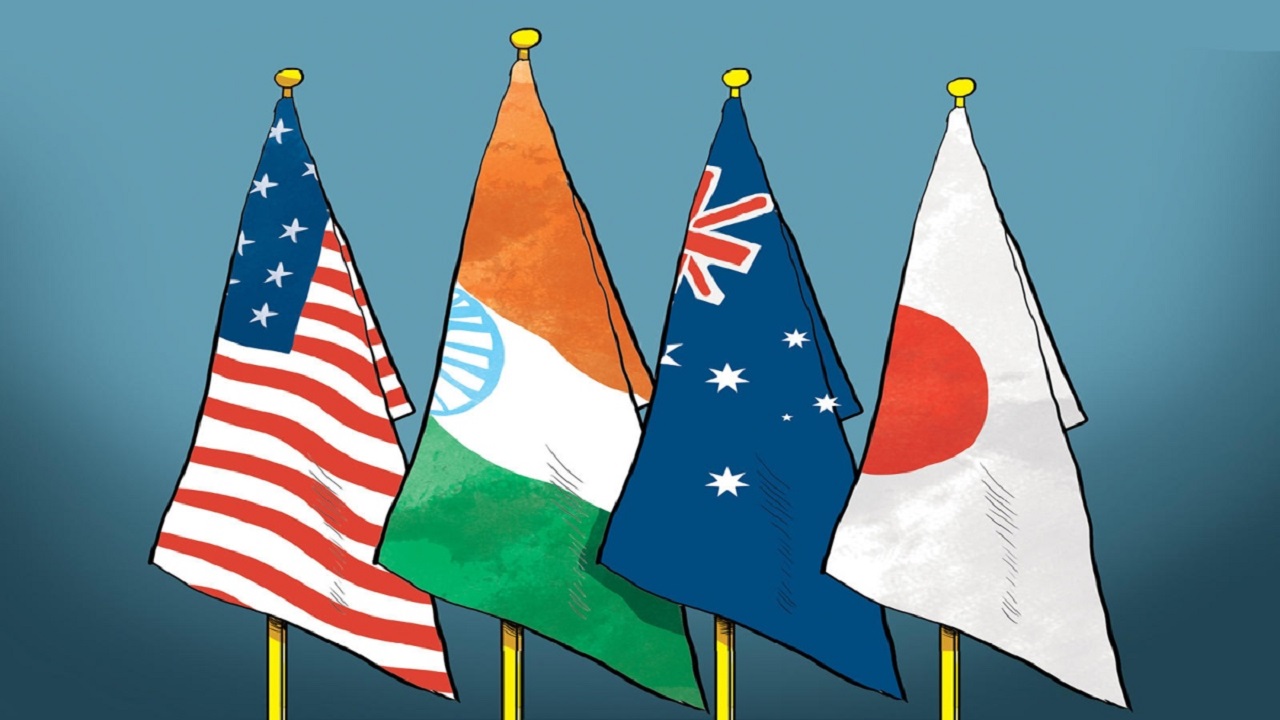Quad and Beyond: Diversifying Global Mineral Supply Chains
Context:
Critical minerals such as rare earth elements (REEs), lithium, and cobalt are essential for the functioning of high-end technologies including electric vehicles (EVs), semiconductors, aerospace systems, and clean energy solutions.
Currently, China controls a dominant share of the global mining, refining, and processing of these critical minerals.
Amid rising geopolitical tensions, economic coercion risks, and supply chain disruptions, the Quad countries—India, Australia, Japan, and the US—have launched the Quad Critical Minerals Initiative to secure and diversify these supply chains.
Quad Foreign Ministers’ Meeting – Washington, DC
-
The second Quad Foreign Ministers’ Meeting was held in Washington, DC.
-
Ministers reaffirmed their cooperation in four priority areas:
-
Maritime and transnational security
-
Economic prosperity and supply chain security
-
Critical and emerging technologies
-
Humanitarian assistance and disaster relief
-
-
The ministers condemned the Pahalgam terror attack and called for bringing the perpetrators and their backers to justice.
Launch of Quad Critical Minerals Initiative
-
The Quad Critical Minerals Initiative was officially launched to:
-
Build resilient and diversified critical mineral supply chains
-
Reduce overdependence on China for essential minerals
-
Promote e-waste recycling, and
-
Encourage private sector investments
-
-
The initiative complements efforts to secure raw materials required for green technologies and defence manufacturing.
Maritime and Logistics Cooperation Announced
-
Key announcements included:
-
First Quad Indo-Pacific Logistics Network field training exercise to be held later this year
-
Launch of the Quad Ports of the Future Partnership in Mumbai
-
China’s Dominance in Critical Minerals
-
China currently controls:
-
Over 60% of global rare earth mining
-
More than 85% of global rare earth refining and processing capacity
-
-
China is the world leader in NdFeB magnet production, used in:
-
EV motors, power steering, jet engines, and wind turbines
-
-
While rare earths are globally available, China has built unmatched processing efficiency and scale
-
Japan has revived its processing sector through policy support, but India and the US still rely heavily on Chinese exports
Geopolitical Tensions and Supply Chain Barriers
-
In retaliation to US tariffs (Trump era), China imposed:
-
Bureaucratic barriers to export critical minerals
-
Restrictions on heavy rare earths and other high-tech materials with dual-use military potential
-
-
These steps raised fears of economic coercion and price manipulation
Impact on India’s EV Sector
-
India’s growing EV industry is facing supply delays due to:
-
China’s refusal to approve critical mineral export applications from Indian automakers
-
China's end-user certificate requirements and local government endorsements, ensuring minerals aren't used for military purposes
-
-
China is now pushing foreign automakers to:
-
Import entire electric motor assemblies instead of just magnets
-
-
While lobbying efforts by companies like Volkswagen have succeeded, Indian firms lack similar influence
G7 Foundation Behind Quad’s Push
-
The initiative builds upon the G7 Critical Minerals Action Plan (announced in Canada), which India endorsed
-
Key commitments under the G7 plan:
-
Partnering with emerging and developing countries to diversify supply
-
Promoting local value addition
-
Supporting the World Bank-led RISE (Resilient and Inclusive Supply Chain Enhancement) initiative
-
India’s National Critical Mineral Mission
-
The Ministry of Mines, Government of India, has launched the National Critical Mineral Mission with an outlay of ₹16,300 crore
-
Key focus areas:
-
Exploration of domestic reserves
-
Overseas acquisition of strategic minerals
-
Research and Development (R&D)
-
Recycling and recovery from e-waste
-
-
India has sought RISE funding support for this mission
India’s Mineral Diplomacy and Strategic Alliances
-
In June 2023, India joined the Minerals Security Partnership (MSP) led by the US
-
MSP includes all G7 countries along with Australia, South Korea, Finland, and Sweden
-
-
In February 2025, during PM Modi’s US visit, India and the US signed the:
-
TRUST (Transforming Relationship Utilizing Strategic Technology) initiative
-
-
Objective of TRUST:
-
Joint collaboration in extraction and processing technologies
-
Focus on lithium, rare earths, and other critical minerals
-




Comments (0)